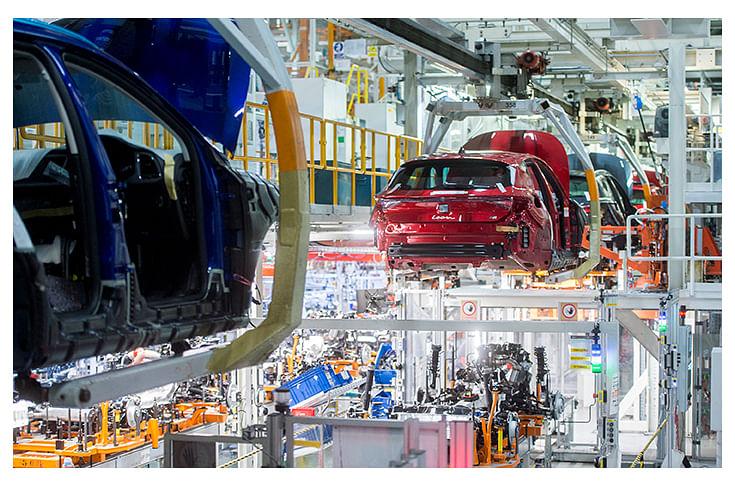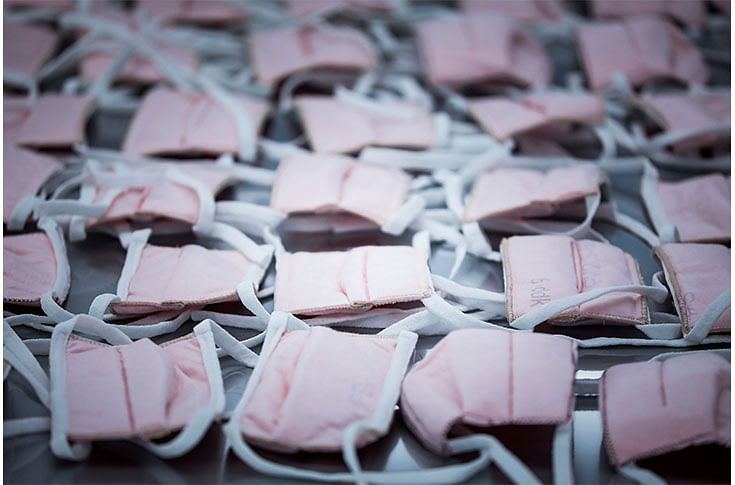SEAT to conduct PCR tests on employees before restarting production
In addition to the PCR testing, the production lines will be adapted to ensure that all employees can maintain the prescribed two-metre social distancing rules.
SEAT will be carrying out PCR (Polymerase Chain Reaction) tests on its 15,000 employees to allow return to work, with limited production resuming on April 27.
The PCR testing, which screens for the SARS-CoV-2 virus, is one of the most reliable ways to identify whether the person has contracted the Covid-19 virus. SEAT is the first company in Spain to do this testing. In addition to the PCR testing, the production lines will be adapted to ensure that all employees can maintain the prescribed two-metre social distancing rules. If an employee’s workspace does not allow this distance, additional measures to ensure personal health and safety will be provided. All workers will receive surgical masks and have hand sanitiser gel at their disposal.
From April 27, more than 3,000 PCR tests will be carried out every week for production employees at SEAT Martorell, SEAT Barcelona, SEAT Components and CROS (SEAT Spare Parts Centre), as well as non-production employees. This testing will be extended to other Volkswagen Group companies in Spain over the following weeks.
Employees must enter and be tested at an on-site clinic at each location (Martorell, Barcelona and Components facilities) before starting work.
The laboratories, built under the supervision of D. Bonaventura Clotet, director of IrsiCaixa and member of SEAT’s Scientific Committee, have been accredited by the Spanish Ministry of Health.
SEAT president and vice-president for Finance and IT, Carsten Isensee said “Now that the most difficult phase of Covid-19 has been overcome, we face the first stage of returning to normal without letting our guard down. It is essential to apply strict health and safety measures to ensure that the return to work takes place in complete safety. With SEAT’s decision to invest in the PCR test programme, we are also helping the health authorities to understand the extent of the pandemic.”
Dr. Bonaventura Clotet emphasised that “Testing all employees is the best way to minimise the spread of the virus. Furthermore, from an epidemiological point of view, it is a great opportunity to enrich the scientific knowledge we have of COVID-19, as the SEAT workforce is a large, representative sample of society. Its results, which are anonymous and confidential, will be the basis of a scientific study within the scope of the SEAT Healthy Company Scientific Committee.”
Gradual return to activity
SEAT will restart limited production on Monday April 27 at the Martorell, Barcelona and Components plants, allowing the observance of necessary health and safety measures.

During the April 27 and May 4 week, one production shift will return to work at each of the three lines at Martorell where the SEAT Ibiza, SEAT Arona, SEAT Leon and Audi A1 are manufactured.
The company will produce around 325 cars a day during these first two weeks. From the May 11 week, two production shifts will be working on each of the lines, enabling the manufacture of around 650 cars a day. SEAT expects to return to a full production rate from June onwards.
New health and safety measures
The resumption will take place with special emphasis on the health and safety of the entire workforce. SEAT’s business recovery plan’s main purpose is to ensure the protection of all employees against Covid-19. It includes information, organisational, preventive and health measures, as well as some specific measures for workers who may be particularly at risk, who should not go to work in the early stages of reopening.
During this reduced production phase, to protect the health of workers, SEAT management and union representatives have agreed a temporary layoff plan for some production workers. The temporary layoff will last for a maximum of eight weeks, after which production will resume at full rate.
From vehicles to ventilators
During the past weeks of non-production due to Covid-19, SEAT turned its production line from vehicles to ventilators to help local healthcare authorities deal with the effects of the pandemic.

SEAT produced more than 600 ventilators, with production halted on Friday April 17, at the direction of the healthcare authority, due to the reduced requirement at Intensive Care Units.
SEAT also produced thousands of surgical masks, made from the filters used in the paint shop booths at the Martorell plant, which were distributed to hospitals, security forces and other organisations. The Spanish Agency for Medicines and Healthcare Products has temporarily authorised the use of these masks during the health emergency caused by Covid-19.
RELATED ARTICLES
Autoliv Plans JV for Advanced Safety Electronics With China’s HSAE
The new joint venture, which is to be located strategically near Shanghai and close to several existing Autoliv sites in...
JLR to Restart Production Over a Month After September Hacking
Manufacturing operations at the Tata Group-owned British luxury car and SUV manufacturer were shut down following a cybe...
BYD UK Sales Jump 880% in September to 11,271 units
Sales record sets the UK apart as the largest international market for BYD outside of China for the first time. The Seal...






 By Autocar Professional Bureau
By Autocar Professional Bureau
 24 Apr 2020
24 Apr 2020
 4436 Views
4436 Views












 Ajit Dalvi
Ajit Dalvi




